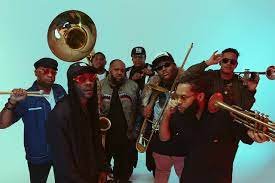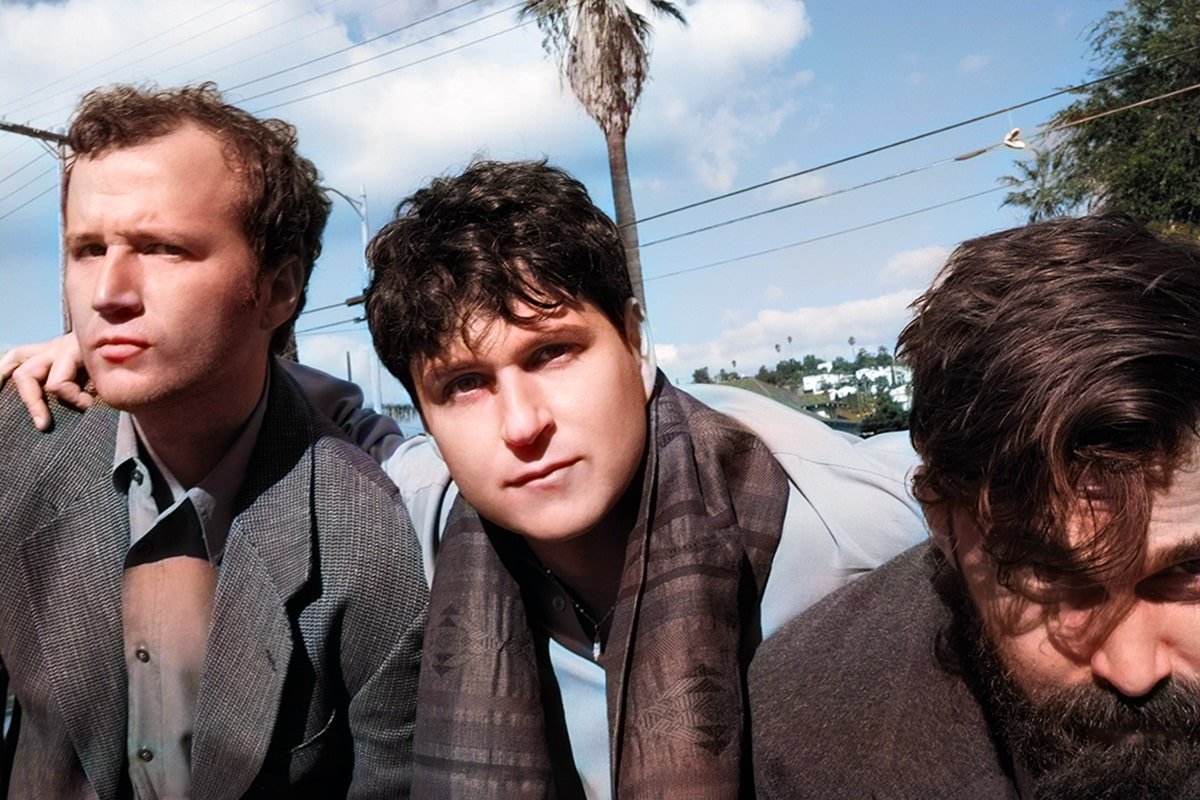When is a Brass Band Not a Brass Band?

Mainline Brass Band has brass and is a band.
It's tempting to say that the Mainline Brass Band stretches the definition of brass band music but really, they're a brass band in name only. The group's self-titled debut album includes "B Train" with a progressive take on a parade rhythm, but the album starts more representatively with "Cleveland and the Penguin," which features John Dobry's guitar so prominently that I thought I had mislabeled the mp3 file. Drummer Jermal Watson sets a fusion-like groove so that when the horns finally enter with an Earth, Wind & Fire-influenced head, the track plays more like a large, horn-driven band than a New Orleans brass band. ""B Train" is more street, but the horns play in fat unison rather than in counterpoint to each other.
Mainline Brass Band sounds like the product a group in the process of developing its identity. "Eddie Long" shows the influence of Trombone Shorty and Big Sam's Funky Nation as it merges horns with heavy rock guitars and rhythms, while "Village People" test-drives reggae. "Stop the Violence" is a contemporary hip-hop slow jam, but they close with an open-your-history-books cover of Fred Wesley & the JBs' "You Can Have Watergate but Gimme the Bucks and I'll Be Straight."
Thankfully, the album still sounds largely contemporary despite the Watergate reference. Daptone Records and funk cratediggers have given a host of retro sounds a modern vibe, Fred Wesley and '70s jazz/funk/pop among them. Only "Stop the Violence" sounds dated as the rap has the cloistered feel of someone who doesn't really like hip-hop or get what makes great hip-hop (hint: it's creativity, just like in everything else).
Mainline merits this much space, though, because my it continues one of the post-Katrina stories in New Orleans, which is the development of contemporary expressions of New Orleans musical forms. There were quadrants that calcifying into a vague nostalgia for a moment that couldn't be pinned down chronologically but pleased crowds nonetheless. Even experiments that don't yet work on disc should be encouraged as we think actively about what New Orleans music should sound like today, and how it strikes the balance between honoring the past and reflecting the present.






